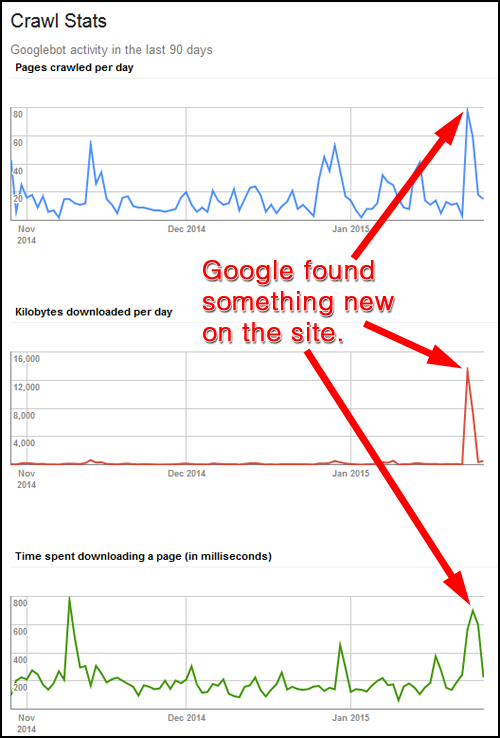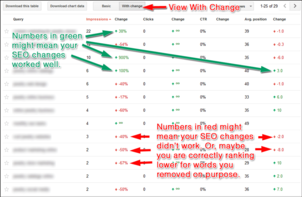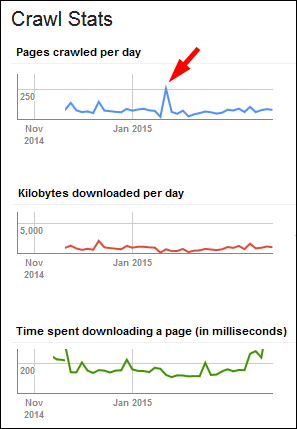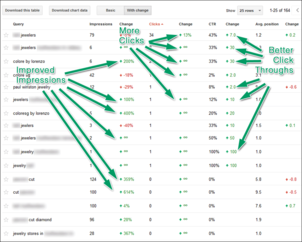
The word "organic" is used to indicate something happening naturally in its environment, without outside influence that is deemed to be artificial or controlled. A quick look at the organic page on Wikipedia and you'll see that there are 28 different phrases for organic used in the English language.
All of the phrases refer to some type of natural growth or living thing that is grown according to certain standards. Organic farming, for example, requires certain standards of farming before you are allowed to call your crops organic.
The Wikipidia explanation for Organic Search indicates that search engine results are achieved through unpaid listings, rather than paid advertising. I prefer to think of organic search as the process of cultivating your online identity, including your website and social accounts, according to certain standards that Google sets forth. Just like growing crops, the process takes a long time to produce results.
When performing search engine optimization on your website, it's often difficult to see immediate results of your efforts, in fact, it's difficult to see immediate results for all methods of online marketing. Some marketing does have immediate success, at which point we call it "viral," but that doesn't happen often.
You must have patience when performing search optimization on your website; otherwise you'll drive yourself crazy. Every change you make to your website must go through a series of processing steps within Google before you see any changes in the search results.
Changing one or two small things on your website every day won't produce noticeable changes in the way Google interacts and reads your website, but several changes will generate visible blips in Google's reporting tools.
Last week, I added 10 new pages to one of my websites along with about 40 photos. Google noticed those new pages and respidered the entire site within 24 hours. I was able to see this on the Crawl Stats report in Google Webmaster Tools (GWT), shown here:

(You can view this report under Crawl -> Crawl Stats of your GWT account)
The next visible change in your ranking will take place a few days later when you view the Search Queries report of your GWT account. Take a look at this:

(click to enlarge)
This report was generated by going to the Search Traffic -> Search Queries report of GWT. I then changed the date range to January 23 - January 27. I launched the changes on January 22nd, and it took Google 24 hours to spider the site again. Even though Google spidered the site, it's possible that those changes haven't made it into the database that search results are pulled from.
I've made some notes in the above image as guidelines of what to look for. The numbers in green indicate that that keyword (they are all blurred out) is trending upwards in the search results. The numbers in red mean that the keyword is trending downward in the search results.
Adding keywords to your site will usually cause the number of impressions to increase. Inversely, removing keywords from your site will usually cause the number of impressions for that word to drop. Sometimes those drops are good, for example, like when you are inadvertently ranking high for the phrase "blue diamond" even though you don't sell blue diamonds. Removing the word "blue" from your pages will cause that keyword to drop in ranking in this report.
Once Google spiders and reindexes your website you will see changes in the report. For this example, I was looking for a specific keyword that was included once on all 10 pages I added to the site. So far that keyword does not appear at all, which probably means Google hasn't finished processing the changes.
Here's another example of a website that had some basic SEO modifications performed, after which they saw a blip on their Crawl Stats when Google respidered their site as you can see here:

It then took 7 more days for us to see the positive changes shown in this report:

(click to view larger)
Some of the results in that above chart are quite phenomenal, like the increased click through rates. However, even though the click throughs had increased, they only increased by 15 total clicks, which is not a lot.
It will take several more weeks for the number of clicks to increase enough to a point where there's a visible increase in sessions as reported through Google Analytics.
Some retail jewelry stores have such a small amount of traffic that those extra 13 visitors will make a difference. But for most retail jewelers, you will have to wait at least two months before you can see a real change on your reports. Even then, you will want to compare those two months of data to the previous two months, or to the previous year.
Reviewing your Google Webmaster Tools reports in this way illustrates how long it takes for changes in organic ranking to take place. Like watching organic crops grow, it takes at least two months before you see results.
The takeaway from today's Daily Golden Nugget is that you should not watch your website reports too closely. Sit back and relax after working on your website. The changes will happen... eventually.








